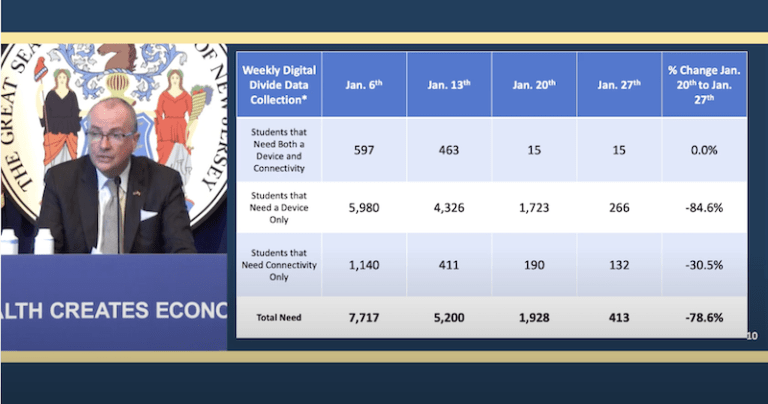TRENTON – Governor Phil Murphy today signed legislation that will require all New Jersey public schools to include mental health instruction in K through 12 health curriculums. The bill (S2861) aims to enhance student understanding, attitudes, and behaviors related to mental health to promote well-being. Governor Murphy also took action on legislation (S3160) that will require the Department of Education to establish a four-year pilot program testing later school start times for high school students.
“We are striving to do all that we can to improve health and wellness for our students,” said Governor Murphy. “By ensuring that children in grades K through 12 learn about mental health, we can promote a healthier future for New Jersey. Research also shows that academic progress may be negatively impacted by starting school too early. By testing the viability of changing start times, we are exploring ways to improve learning outcomes for New Jersey students.”
S2861 will require the State Board of Education to review and update the New Jersey Student Learning Standards in Comprehensive Health and Physical Education to ensure that mental health education is incorporated in an age-appropriate way in K through 12 health curriculums. The legislation was sponsored by Senators Kristin Corrado, Richard Codey, and Joseph Vitale and Assembly members Gary Schaer, John McKeon, Joann Downey, Raj Mukherji and Daniel Benson.
S3160 will assess how shifting start times would impact districts overall, including how extracurricular activities may be impacted and how transportation to and from school would be affected. Under the legislation, Commissioner of Education Lamont Repollet will select five school districts to participate in the pilot program. Those school districts must include urban, suburban, and rural areas of the state.
AFTNJ President Donna M. Chiera said, “Classroom teachers see students exposed to the negative impacts of trauma caused by social factors such as violence, abuse, bullying and the ravages of the opioid crisis on their home lives. These students are stressed out and deserve both education to help them understand as well as wraparound social and emotional services in community schools to help them cope. Legislation to include mental health information, including substance abuse awareness, in age-appropriate education is a positive step in that direction and we look forward to working on its implementation.
“Research has shown that developing teenagers may perform better with additional time in the morning for sleep. Innovating by testing the implementation of these promising findings should be done collaboratively in conjunction with community needs and prioritizing students healthy growth over competing time demands of athletics and extracurriculars.
“Taken together, these bills show what can be accomplished when the voices of educators are considered along with relevant research so that students needs are foremost considerations in the legislative process.”
More >>


